Scientific and humanistic disciplines are facing a crisis: their historically evolved research interests seem ill-suited to addressing our era’s most pressing environmental, societal, and ethical challenges. The current state of humanity requires us to rethink—but not unthink—some of the basic tenets of scientific knowledge.
The Elkana Forum tackles this crisis at its root, by interrogating the very research questions that science poses. What different questions are needed to reestablish a meaningful relationship between science and real-life challenges today and in the future? This interdisciplinary forum brings together leading intellectuals to explore the scope for change at the interface between science and politics.
The inspiration for the Elkana Forum is the visionary philosopher and historian of science Yehuda Elkana, who argued that science urgently needs to find new ways to select its research questions. Our first event, “Disciplines in Disarray,” marks the tenth anniversary of Elkana’s death on September 21, 2012.
Wednesday,
September 21
Welcome Addresses
2 – 3:15 pm
Speakers
Jürgen Renn
Welcome Address on Behalf of the Max Planck Institute for the History of Science
Katja Krause
Opening Address
Shai Lavi
Welcome Remarks on Behalf of The Van Leer Jerusalem Institute
Christoph Markschies
President of the Berlin-Brandenburg Academy of Sciences
How to Develop Academics and Universities: Yehuda’s Impulses and My Own Experiences
Disciplines in Disarray?
3 – 6:30 pm
Moderation
Wilhelm Krull
Speakers
Wilhelm Krull
Introductory Remarks: Transgressing Disciplinary Boundaries
Sebastian Bonhoeffer
Wicked Problems and the Academic Ecosystem
Françoise Baylis
Slow Science: An Effective Path to “Finding, Choosing, and Defining” the Most Important Questions of Our Time
Volker Meyer-Guckel
Problems, Challenges, and Space of Knowledge: Realizing and Organizing New Knowledge Communities beyond Academia
Aziz Al-Azmeh
Academic Paradigms as Political Dispositions
Mordechai Kremnitzer
Populism: Politics and Science
Remembering Yehuda
7 – 8:30 pm
Moderation
Glenn Most
Speakers
Dan Weinstein
Whither Do You Go Home (music by Amos Elkana)
Rivka Feldhay
My Mentor Yehuda
Joachim Nettelbeck
Yehuda Elkana as an Institution Builder
Dan Pelleg
Happily Ever After (with dance performance)
Thursday,
September 22
Contexts of Being Human
9 – 11:30 am
Moderation
Lorraine Daston
Speakers
Marina Garcés
How to Imagine a New Radical Enlightenment
Maria Paradiso
Human Condition: “Persona geographica” in the Internet Age
Daphna Hacker
Law, Families, and Gender
Giovanni Frazzetto
Science and Narratives of Intimacy
Julia Mossbridge
Agape: The "Electricity" of Twenty-First-Century Science and Technology
Security — Resilience — Vulnerability
12 – 1:30 pm
Moderation
Moran Cerf
Speakers
Mika Kerttunen
How Do You Know? On the Epistemology of Cybersecurity
Haya Shulman
Digital Sovereignty in Modern Societies
Precarities
2 – 4:30 pm
Moderation
Moran Cerf
Speakers
Oren Harman
Knowing without Understanding
Sandra Matz-Cerf
The Human Microscope: How Big Data offers a Window into our Psyche
Gerd Gigerenzer
The Human Affair with AI: How Technology Changes Us
Shai Lavi
Being Ethical in the Age of AI: From Interdisciplinarity to Pre-Disciplinarity
Human Conditions – Human Cognitions
5 – 7:30 pm
Speakers
Daphna Joel
Are Men and Women the Same or Different? Or Is It the Wrong Question?
Simone Kühn
Investigating the Effects of the Physical Environment on Brain Plasticity
Keely Muscatell
The Social Life of the Immune System: Integrating the Social Environment to Understand Health
Ehud Gazit
The Great Enigma in the Understanding and Treatment of Age-Related Cognitive Disorders: Were We All Wrong?
Eva Jablonka
Through the Lens of Evolution: Lamarckian Inheritance and Conscious Agency
Presentation of the Elkana Forum
8 – 8:30 pm
Ohad Parnes
Katja Krause
Reception
The Only thing Greater than Death is Life
8 – 9:30 pm
Speakers
Alexander Polzin
Requiem. A dialogue with Katja Krause
Tamara Stefanovich
Yehuda Elkana and György Kúrtag
Followed by a Piano Recital
Friday,
September 23
Prethinking
10 am – 1 pm
Moderation
Thomas Metzinger
Speakers
Moran Cerf
Lucid Dreaming
Chiara Cirelli
How to Assess the Presence of Consciousness in the Absence of Behavioral Reports
Tania Singer
The Social Neuroscience of Altering Consciousness through Mental Training
Giulio Tononi
IIT 4.0: from Phenomenology to Physics
The Future of Science?
2 – 5 pm
Moderation
Ohad Parnes
Speakers
Jamie Cohen-Cole
Making Meanings: Human Nature and the Future of the Humanities
Lucia Melloni
Accerlerating Research through Open Science Adversarial Collaboration
Rudolf Stichweh
The Complexity of Modern Science and the Evolution of Global Problems
Michael Esfeld
Science and the Constitutional State
Éliane Ubalijoro
Reimagining the Future of Science for a Sustainable Planet
Christian Schubert
Why Do We Need a Paradigm Shift Now? Machine Medicine versus Biopsychosocial Medicine
Closing Remarks
5 – 5:30 pm
Closing Remarks by Katja Krause and Ohad Parnes

